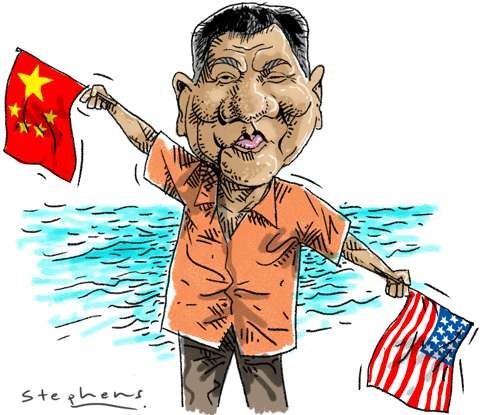
Playing the US against China may prove a smart move for Rodrigo Duterte
Eduardo Araral and Richard Heydarian say the Philippine leader, who will meet Xi Jinping in a closely watched meeting this week, is right to try to maximise the gains for his country
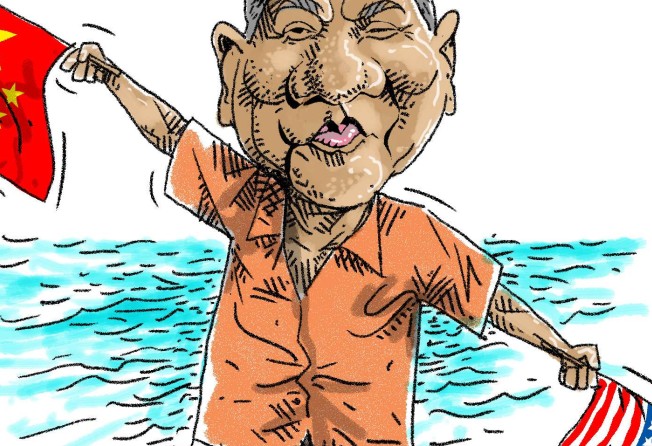

The answer to the first question is straightforward. Like everyone else, Duterte wants to maximise the gains for the Philippines in its relationship with China and the US. Most would assume that he is trying to play off the US against China in the hope of getting the best deal. Therefore, the argument goes, his friendliness towards China and his expletive-laden criticism of the US should be seen in this light.
The answer to the second question – whether Duterte will cross the Rubicon – is more complicated. The short answer is, it depends on how the US and China respond to moves.
If the US does not want to completely lose Duterte to China, how then should it respond to his game? The US should play a game of costly signalling. Drawing valuable lessons from game theory, a signal is costly if the sender will incur certain costs it would have otherwise avoided. Costly signals are necessary to demonstrate one’s sincerity in a relationship. This is what Duterte wants from the US.
Thus, the US should first of all help, rather than merely criticise, Duterte’s war on drugs. After all, Duterte is on a crusade and crusaders don’t back down. Duterte thinks that the US is hypocritical because, although the US has helped Mexico and Colombia wage a bloody war on drugs, it has been nowhere near as proactive in aiding the Philippines’ campaign against illegal drugs. And there is room for cooperation.
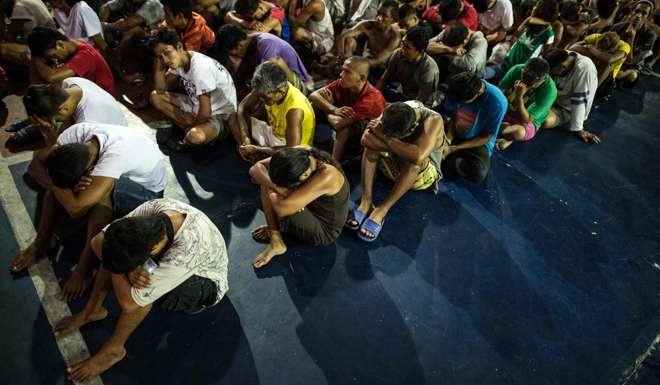
For instance, America, and the Western powers in general, can and should help the Philippines set up rehabilitation centres for hundreds of thousands of drugs users, who have surrendered to the government in the past three months. China has already been helping the country in this regard.
Second, the US should adopt a measured approach to the human rights issue. For the Duterte administration, the US should take a hard look in the mirror before pointing fingers at others.
Third, this is also about according due respect to the democratically elected head of a sovereign state. This is the difference between Duterte’s treatment of the US and Japan. Both countries committed atrocities against Filipinos in the past but Duterte has not criticised Japan because not only is it the Philippines’ largest donor, giving far more than the US, but it is also respectful towards Duterte and has sincerely apologised for its war crimes. Meanwhile, Washington has yet to express similar contrition vis-à-vis its colonial-era crimes. This is the context of Duterte’s rhetoric about the US treating the Philippines as its “little brown brothers”.
Repeated rhetorical assurances from President Barack Obama about ironclad commitments have not reassured Duterte
Fourth, America should provide commensurate aid to its longest-standing ally in Asia. It should increase its economic and military aid to the Philippines in return for the Enhanced Defence Cooperation Agreement between the two countries. Duterte thinks that the agreement is lopsided in favour of the US. It gets access to five military bases in the Philippines in return for US$180 million a year in aid.
To put things into perspective, nations such as Egypt, Pakistan and Jordan have been receiving billions of dollars annually in recent years, far more aid than the Philippines, even if they are undemocratic, non-treaty allies which have shunned granting comparable base access to US forces.
Finally, this is also about more clarity on the extent of the US commitment to the Philippines under their 1951 Mutual Defence Treaty. Repeated rhetorical assurances from President Barack Obama about ironclad commitments have not reassured Duterte and many Filipinos, who legitimately seek more clarity than semantics.
Duterte wants to build a credible deterrence posture for the Philippines but feels the US has been reluctant to provide the necessary military equipment. The US is concerned that this might escalate tensions with China. Duterte knows this reluctance by the US, and that is why he is considering Russia and staunch US allies such as Israel as alternative military suppliers.
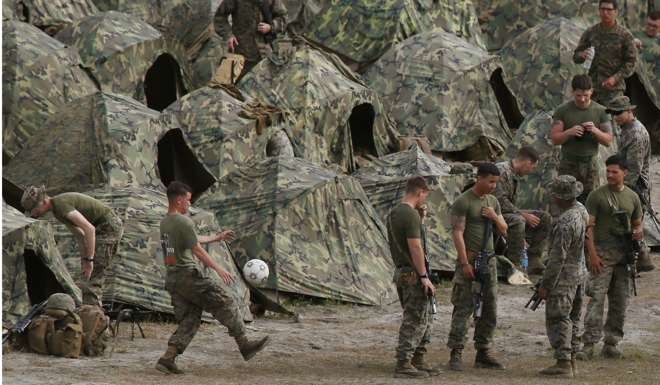
To make his signals credible, Duterte has been ratcheting up his threats against the US, starting with the threat of pulling out US military personnel in Mindanao, ditching the Enhanced Defence Cooperation Agreement, which is an executive agreement, and suspending joint patrols and military exercises in the South China Sea.
What about China? China would have to play the game of costly signalling as well. Apart from increasing trade, aid and investments in the Philippines – all part of Duterte’s wish list – China would do well to allow Filipino fishermen back at Scarborough Shoal without being seen as having acceded to the Hague ruling.
Duterte is unlikely to stop his colourful language because he thinks this is a useful tool
This will give Duterte more domestic political capital to enable him to continue mutually beneficial dialogue and negotiations with China. If China plays hard on him, he would lose domestic credibility in future rounds of negotiations. It is in China’s interest, therefore, to strengthen Duterte’s hand.
What about Duterte? He knows that this is an evolving game and is likely to adjust his game depending on how China and the US respond to his play.
In the first round of the game, he has already signalled in colourful language what he wants from the US and his resolve as a leader. If the next US president plays this costly signalling game, Duterte is likely to reciprocate in commensurate terms. However, he is unlikely to stop his colourful language because he thinks this is a useful tool to advance his game.
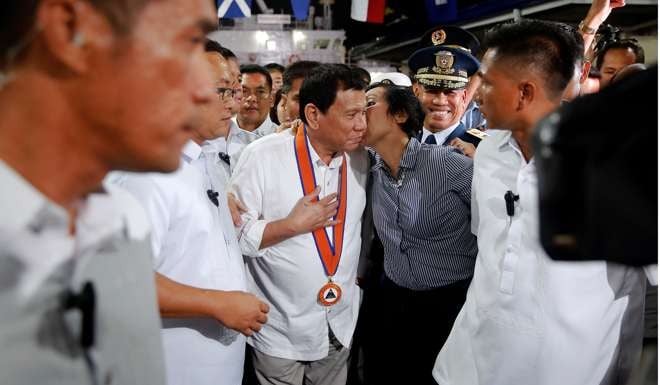
When he meets Xi this week, Duterte will find out how far his relationship with China will evolve. He is realistic enough not to expect China to respect the Hague ruling. At the same time, he knows that China wants the Philippines to be in its sphere of influence.
Duterte knows that the Philippines is a booming emerging market, an emerging geopolitical player in East Asia and he’s got two avid suitors. Fortunately, at the moment, he need not choose either the US or China.
At the recent China-US strategic dialogue, Xi called on the US to work together to “cultivate a common circle of friends instead of exclusive friends”.
It is a delicate balancing act, which shrewd statesmen such as Duterte can pull off, especially if he appreciates the counsel of his trusted advisers. A “win-win” outcome for all the players is possible. In the end, everybody gets what they want. The US gets to keep the Mutual Defence Treaty and remain a key security partner with the Philippines. China will gain a valuable friend, in spite of the Hague ruling, and Duterte can maximise the benefits for the Philippines by maintaining an equi-proximate relationship with both superpowers.
Eduardo Araral is vice-dean of research and associate professor at the Lee Kuan Yew School of Public Policy, National University of Singapore. Richard Heydarian is a Manila-based academic and author of Asia’s New Battlefield: The USA, China, and the Struggle for Western Pacific